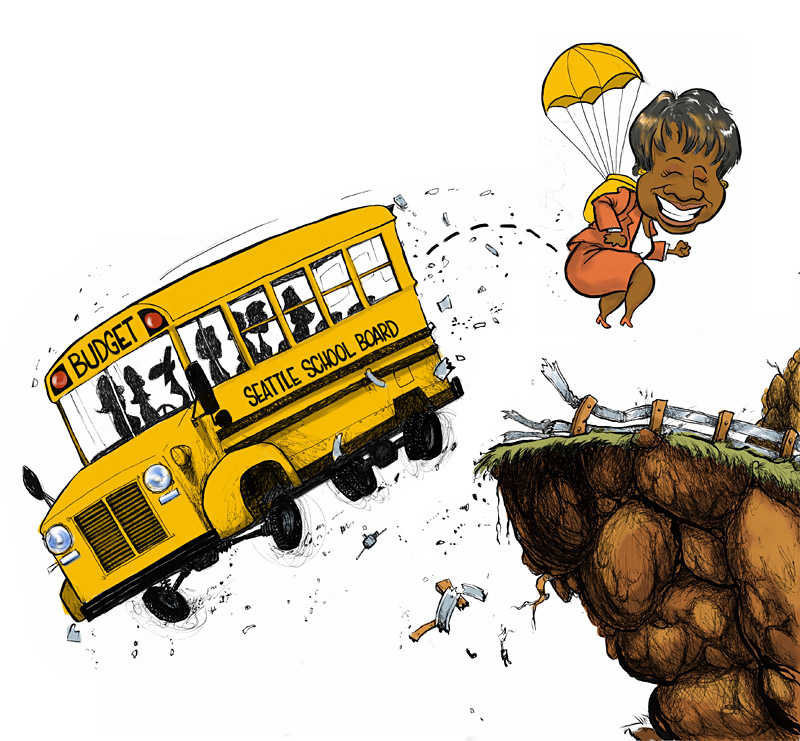We’re now spending hundreds of thousands of dollars to buy out school Superintendent Maria Goodloe-Johnson, who was shown the door last week after it was revealed that the district pissed away millions during her tenure. And this fall, when the board starts searching for a permanent replacement, we’ll quite likely spend thousands more on one of those high-priced consultants deemed necessary to vet candidates. Is there any bright side to this? Yes!
School Board vice-president Michael DeBell expressed it when he said of the superintendent: “I believe it’s a good thing that she’s departing at this time.” DeBell, one of the board’s more clearheaded members, was not talking about the need to hold Goodloe-Johnson accountable for the blatant financial misdeeds that happened on her watch. Rather he was referencing something arguably more important: the toxic relationship between the former superintendent and her teaching staff.
In a series of no-confidence votes last year, teachers said loud and clear that they didn’t like their boss. “I’ve talked to school-board directors around the country, and they all say that something like that is not sustainable,” says DeBell.
At times it was hard to pinpoint the reason for the teachers’ venom. It didn’t stem from any single decision, but rather from a series of moves that seemingly led teachers to believe that Goodloe-Johnson, like the national reform movement associated with her, blamed them for all the troubles that ail public education.
In retrospect, DeBell says he regrets not getting teachers involved in the five-year strategic plan the superintendent rolled out in 2008. Instead, the district paid outside consulting firm McKinsey & Company to help it draft the plan, which instituted much more centralization and limited teachers’ ability to make curriculum choices.
The art of teaching seems to have been lost on Goodloe-Johnson, whose “devotion to the data” from constant testing ruled the day. Now her ouster gives the district an opportunity to reconnect with teachers—and the public, which found it difficult to warm to a superintendent who showed little warmth herself, but an extensive command of education jargon. And it’s a chance to reopen the debates over how much centralization and testing we want.
By all means, the board should look for a new superintendent who can get the district’s financial house in order, and it’s unclear whether interim superintendent and former chief academic officer Susan Enfield is that person. But the district also needs a superintendent who can inspire teachers rather than rule them.








